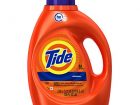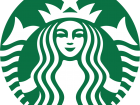Branding is the most overused word in marketing. And this coming from a guy who makes his living helping companies, organizations and even personalities define and live up to their “brand”. To be sure, I can't define a brand from nothing. Though many have tried. Especially during the dot.com bubble. Who's left? But I'm diverting. A brand is something earned, not bought.
So when I read fluffy or naive articles such as Derrick Story's “The Technology Beneath the Brand” on O'Reilly Net I cringe.
[…] but sometimes companies cling too tightly to brand identity, and I think Apple falls prey to this also. The company wants everything to appear “very simple” because a key component of its identity is ease of use. Actually, many of Apple's products, like the iApps, are really quite sophisticated […]
Story claims that Apple clings too close to its brand? Huh? I'm not sure what he suggests, but if I read between the lines he acknowledges that while Apple's products are simple and easy to use, they are quite sophisticated, too. Problem is, too many companies try to be all (everything) for all (everybody). The resulting mess is a diluted brand with no focus or clarity. It's the failure to commit to something that causes many companies to fail. The fear of alienating a potential customer through some “brand message” that speaks to another is a classic marketing blunder.
But companies needn't alienate customers. But they do need to focus on core messages. This is why marketers develop strategies the leverage message matrices that include supporting communications and messaging.
Then we have Marc Gobe, an author of yet another “Branding” book (how many do we need?). I think I have as many
such books as I do catalogs during this holiday season. Sure, I read them all. I have to. Gobe in his own brilliance is quoted in Leander Kahney's article in Wired Apple: It's All About the Brand, as saying “Apple's brand is the key to its survival. It's got nothing to do with innovative products like the iMac or the iPod.” What? He continues with another remark that “”Without the brand, Apple would be dead,” he said. “Absolutely. Completely. The brand is all they've got.”
It's this type of rhetoric that gives agencies, consultants and branding a bad name. So where did Apple get this Brand that has saved Apple and is its life-support system? Nordstrom's?
Point is, Gobe can't make up his mind. He claims that products have nothing to do with the success of the company, yet he admits Apple's colorful computers (read: iMac) rejuvenated its brand. Gobe isn't lost completely, though. He admits that streamlined advertising messages have contributed to turning the company around from its beleaguered status in much of the 1990's. That and the second coming of Steve Jobs.
What Gobe fails to recognize is my key concept that a Brand is earned, and not bought. A brand is a contract, a promise. If you break it, you suffer the consequences. And in the 90's Apple was paying the price huge in terms of lost developers, lost customers and lost confidence from both Wall Street and the press.
Innovation, great products and simplified messages have synergistically reignited Apple's position and regained the confidence of developers, customers, the press and for the most part the investment community. In short, Apple has continued to fulfill its contract and promise to its customers.
Jean-Marie Dru, author of
Disruption: Overturning Conventions and Shaking Up the Marketplace
(an excellent book) says many of the Mac's original engineering team told him that Apple's brand represents “liberty regained”. True to its promise, Apple's products have liberated many:
- Liberated users from wires (802.11 – Airport)
- Make home movies worth watching and fun (iMovie)
- Make Hollywood movies easier (FinalCut Pro)
- Make Digital Video easy (IEEE 1394 – FireWire)
- Leverage standards so products would be more liberating (USB)
I won't go on as many bloggers, technocrats and journalists have documented Apple's innovation all too well.
There's no question that a brand and the notion of branding are important and tremendously powerful marketing concepts. But without substance, history and proof, a “brand” is not (and will not) a “brand”. It's simply a fad. A disposable pop-culture nothing. And with Apple, Gobe is right, the brand is strong — strength that is well earned.



